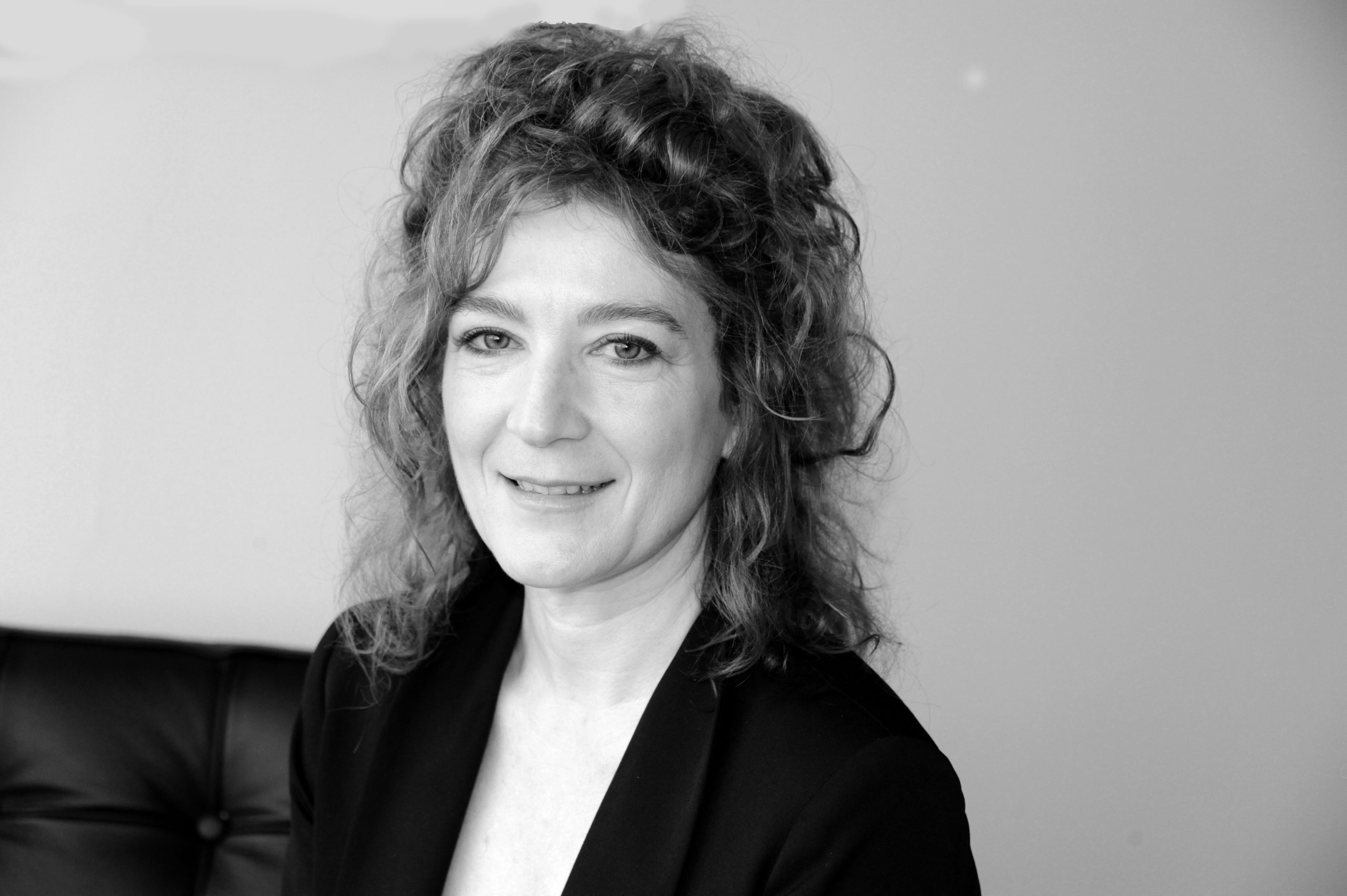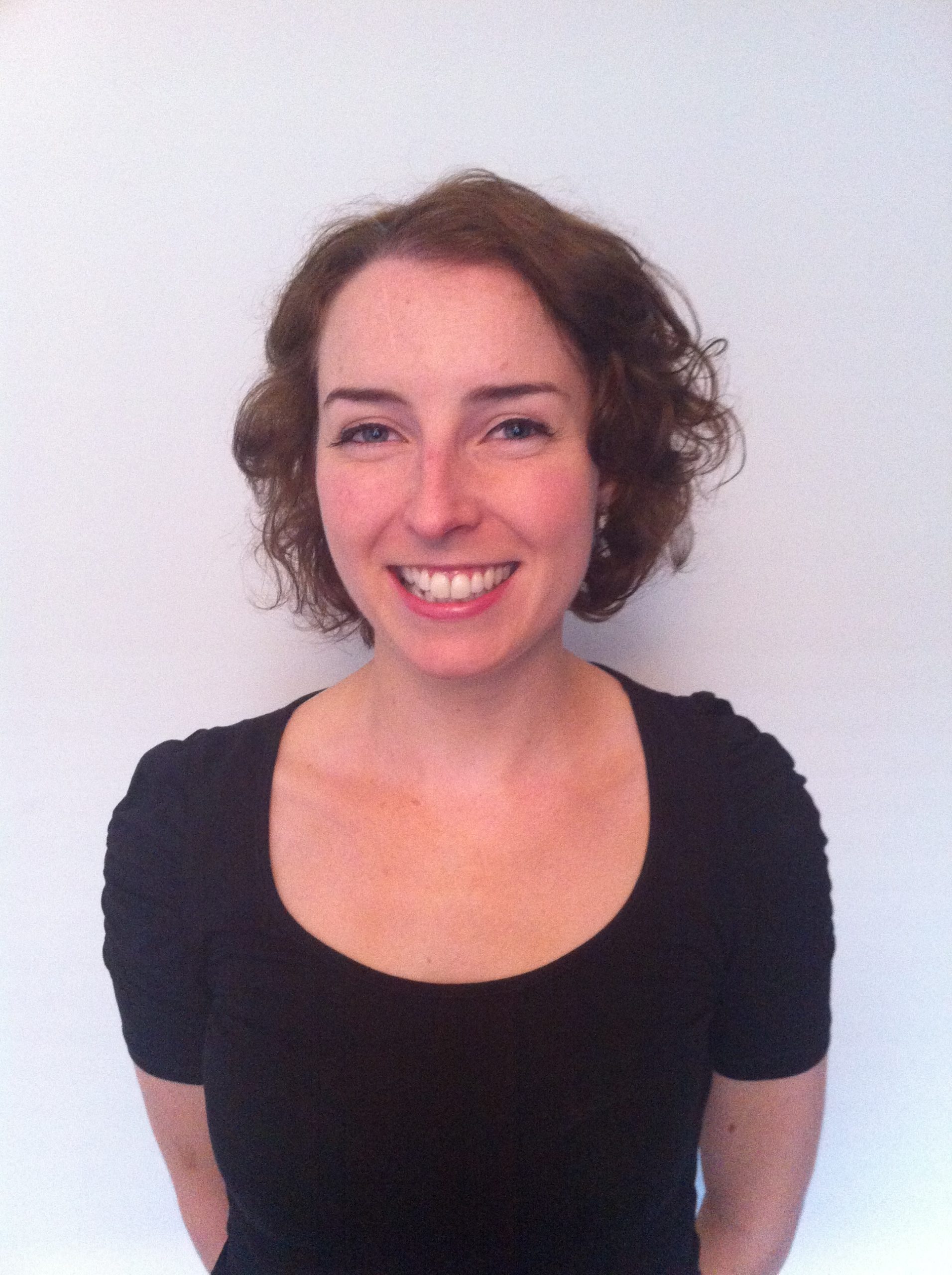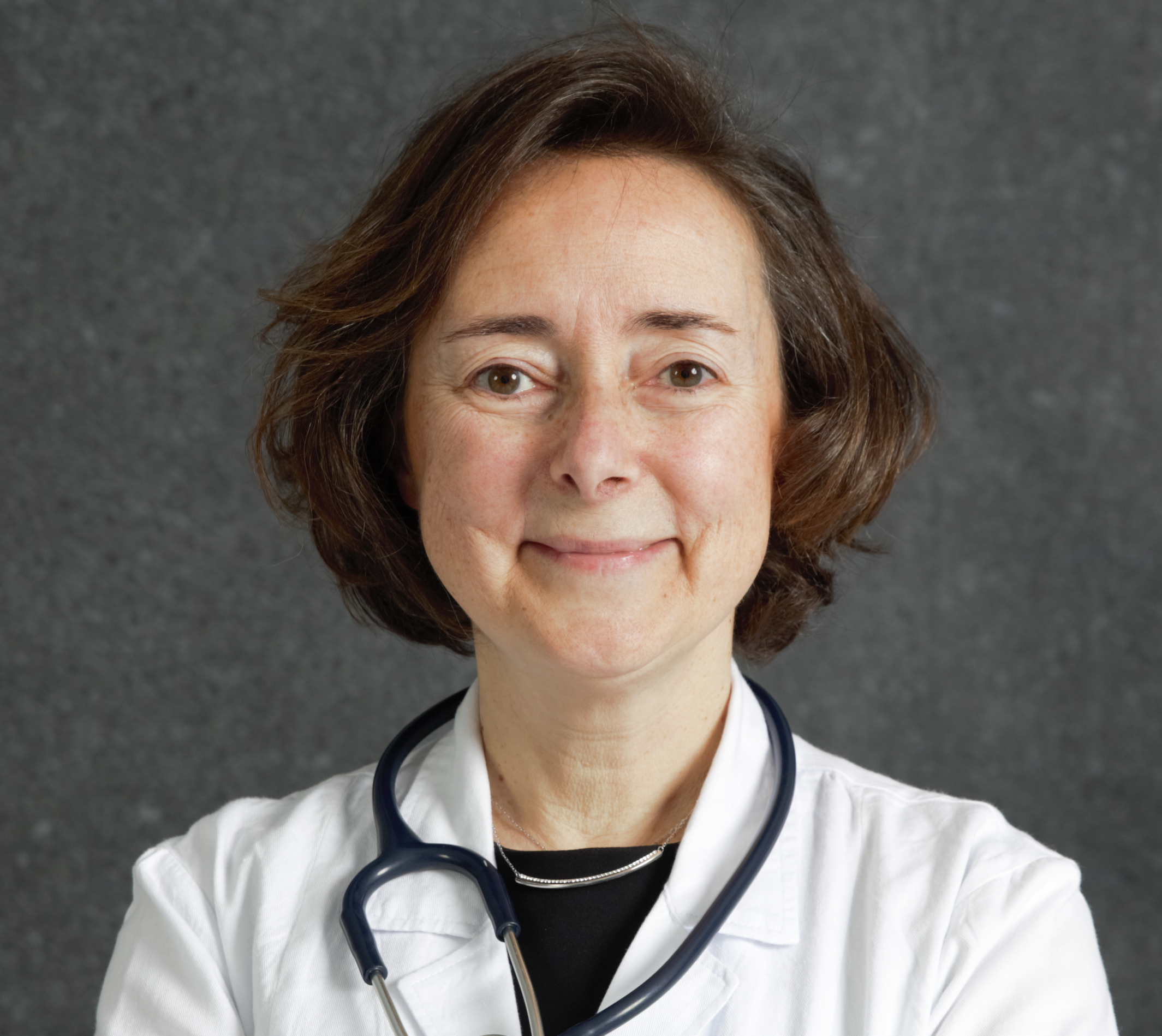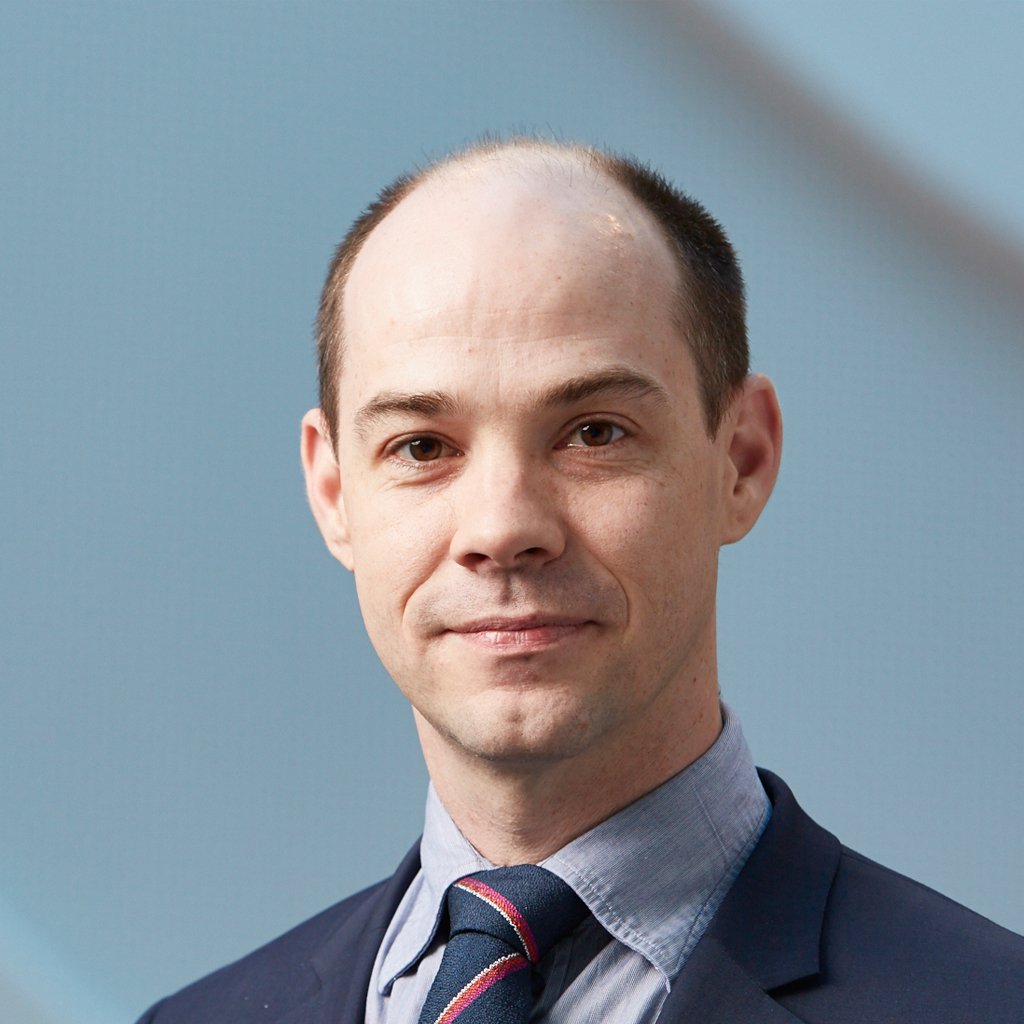touchEXPERT OPINIONS Optimizing care with CAR T-cell therapy now and in the future for patients with B-cell malignancies
Get an update on chimeric antigen receptor (CAR) T-cell therapy for B-cell malignancies, including guidance on referral and toxicity management, in these interviews with five experts.
Prof. Thieblemont appraises the current treatment landscape for CD19-targeting CAR T-cell therapy in B-cell malignancies and provides an overview of efficacy and safety data from clinical trials and real-world studies.
1/5 Next InterviewIn this interview, Prof. Catherine Thieblemont answers the following questions:
- What CAR T-cell therapies are currently available for B-cell malignancies?
- What are the key clinical trial efficacy data for anti-CD19 CAR T-cell therapies in B-cell malignancies?
- What are the key safety data for the anti-CD19 CAR T-cell therapies in the clinical trial setting?
- How safe and effective are CD19-targeting CAR T-cell therapies for B-cell malignancies in the real-world?
- How might these latest data impact the use of CAR T-cell therapies in patients with B-cell malignancies?
Catherine Thieblemont, MD, is Professor of haematology at Paris University and Head of the Hemato-Oncology Department at the Hôpital Saint-Louis in Paris, France. read more
Prof. Thieblemont trained as a haemato-oncologist in Lyon, France and subsequently spent 2 years at the Department of Hemato-Pathology at the National Cancer Institute in Bethesda, MD, USA. Since 2007, she has been the Head of the Hemato-Oncology Department at the Hôpital Saint-Louis, Paris, focusing on the management of patients with lymphoma.
Prof. Thieblemont’s major research interests are the biological and clinical features of lymphomas. She is currently involved in many clinical trials of lymphoma treatment, particularly innovative treatments including targeted therapies, immunotherapies, and CAR T-cell therapy. Prof. Thieblemont participates in translational research programmes developing genomic and metabolomic studies on low- and high-grade lymphomas, predominantly marginal zone lymphoma (MZL) and refractory aggressive B-cell lymphomas, using integrative genomics and metabolomics to determine key biological targets for new therapies.
Prof. Thieblemont is an active member of the Lymphoma Study Association (LYSA), as a member of both the Steering Committee and the Scientific Committee, and is the coordinator of the MZL Subcommittee. She also serves on the Board of Directors of the International Extranodal Lymphoma Study Group (IELSG).
Prof. Catherine Thieblemont discloses: Consultant/advisory board for Cellectis, Gilead, Janssen, Kite, Novartis and Roche. Speakers bureau for Cellectis. Lectures for Gilead, Janssen, Novartis and Roche.
Prof. Dr. Subklewe considers current approaches to assessing patient eligibility for CAR T-cell therapy, biomarkers which may be used in the future to identify patients who may benefit, and the rationale for early referral.
2/5 Next InterviewIn this interview, Prof. Dr. Marion Subklewe answers the following questions:
- Which patients are currently eligible for anti-CD19 CAR T-cell therapies?
- What factors may influence the decision to treat a patient with CAR T-cell therapy?
- What possible biomarkers could be used in the future to better identify patients who may benefit from CAR T-cell therapies?
- When should a patient be referred for assessment for treatment with CAR T-cell therapy?
Marion Subklewe is Head of the Laboratory for Translational Cancer Immunotherapy at the LMU – Gene Center Munich and Full Professor of internal medicine with a focus on cellular immunotherapy at LMU – University Hospital of Munich. read more
Prof. Dr. Subklewe is also an Attending Physician in haematology/oncology and Head of flow cytometry at LMU – University Hospital of Munich.
Prof. Dr. Subklewe is a member of the steering committee for the EHA-EBMT 3rd European CAR T-cell Meeting and a member of the steering and organizing committee of the international symposium Acute Leukemias.
Prof. Dr. Marion Subklewe discloses: Research support from Amgen, Gilead, Miltenyi, MorphoSys, Roche and Seattle Genetics. Advisory boards for Amgen, Celgene, Gilead, Janssen, Novartis, Pfizer and Seattle Genetics. Speakers Bureau for Amgen, Celgene, Gilead and Pfizer.
Dr O’Reilly outlines the main safety considerations associated with CAR T-cell therapy across the short-, medium- and long-term post-infusion. She also considers how patients can be safely managed in the community setting after they have been discharged from hospital.
3/5 Next InterviewIn this interview, Dr Maeve O’Reilly answers the following questions:
- What are the short-term safety considerations associated with CAR T-cell therapy, and how are they best managed?
- What medium-term safety considerations do HCPs need to be aware of and how can they be optimally managed?
- What are the key long-term safety considerations associated with CAR T-cell therapy, and how are they best managed?
- How can we safely and effectively manage our patients in the community setting?
Maeve O’Reilly is a Consultant Haematologist at University College London Hospital (UCLH), UK, with a special interest in T-cell immunotherapy and bone marrow transplantation. read more
UCLH has a large T-cell immunotherapy department with an expanding portfolio of academic and commercial T-cell studies. Dr O’Reilly is skilled in Good Manufacturing Practice-compliant (cGMP) CAR T-cell manufacture and works with the University College London CAR T-cell clinical trials team and the NHS CAR T-cell service on infrastructure setup to accommodate the expanding clinical service at UCLH.
Dr Maeve O’Reilly discloses: Honoraria from Gilead and Novartis. Travel grants from Gilead.
Prof. Balduzzi contextualises the latest clinical trial and real-world data for CD19-targeting CAR T-cell therapies in B-cell acute lymphoblastic leukaemia (ALL). She also considers how to identify patients with B-cell ALL who may benefit from CAR T-cell therapy and how possible adverse events can be best managed.
4/5 Next InterviewIn this interview, Dr Adriana Balduzzi answers the following questions:
- What is the current status of CAR T-cell therapies in the clinical management of B-cell ALL?
- How effective are CAR T-cell therapies for B-cell ALL?
- What have we learned so far about CAR T-cell therapies for B-cell ALL in the real-world setting?
- How can we identify patients with B-cell ALL who may benefit from CAR T-cell therapy?
- What are the possible adverse events with CAR T-cell therapy in patients aged under 25 years, and how can they be optimally managed?
Adriana Balduzzi is Associate Professor of paediatrics in the Pediatric Department of the University of Milano Bicocca in, Monza, Italy. She leads the Outpatient Department of Pediatric Hematology and Transplantation, and is responsible for donor searches and selection for allogeneic transplantation. read more
Since 2009, Prof. Balduzzi has been an active member of the Board of the Pediatric Disease Working Party of the EBMT. She served as a secretary until 2014, and since 2015, has been the Chairman of the Stem Cell Transplantation Committee of the International BFM Study Group, a 30-country group focusing on transplantation in paediatric haematological malignancies.
Prof. Balduzzi has been working in the field of paediatric haematopoietic transplantation since her graduation in medicine, gaining significant expertise in tailoring minimal residual disease-driven interventions in transplantation for acute lymphoblastic leukaemia.
In the exciting era of precision medicine, Prof. Balduzzi is involved in both academic and commercially driven protocols investigating the safety and the efficacy of innovative manipulated cell products, including CAR T-cells, for which she is clinically responsible.
Prof. Balduzzi has published extensively, authoring and co-authoring key papers in the field and international protocol reports.
Prof. Adriana Balduzzi discloses: Advisory boards for Amgen and Novartis. Travel support from Jazz, Medac and Neovii. Meeting support from Medac, Neovii and Novartis. Speakers bureau for Amgen and Novartis.
Based on the latest clinical trial data, Dr Dickinson provides an update on the safety and efficacy of CD19-targeting CAR T-cell therapies in emerging indications, including indolent non-Hodgkin lymphoma (NHL; follicular lymphoma and marginal zone lymphoma) and mantle cell lymphoma (MCL). He also considers how these developments might influence future management of patients with B-cell malignancies.
5/5 Leave FeedbackIn this interview, Dr Michael Dickinson answers the following questions:
- For which new indications are CAR T-cell therapies being explored and why are additional treatment options needed for these patients?
- How safe and effective are CAR T-cell therapies in indolent NHL in the clinical trial setting?
- How safe and effective are CAR T-cell therapies in MCL in the clinical trial setting?
- How will CD19-targeting CAR T-cell therapies influence future practice in the clinical management of B-cell malignancies?
Michael Dickinson is a Consultant Haematologist and Lead of the Aggressive Lymphoma disease group within Clinical Haematology at Peter MacCallum Cancer Centre and Royal Melbourne Hospital, Australia. read more
He specializes as a principal investigator in phase I/II clinical trials of new anticancer drugs with a current focus on aggressive lymphomas and novel immunotherapies, but with experience across a breadth of haematological malignancies. His investigator-initiated studies have focused on the role of epigenetic modifiers in haematological malignancies and new CAR T-cell therapies.
Dr Michael Dickinson discloses: Advisory board fees, speaker fees and honoraria from BMS, Gilead, MSD, Novartis and Roche. Research support from MSD, Novartis and Roche.
Overview & Learning Objectives
Overview
In this activity, five leading experts in CAR T-cell therapy share clinical insights on its use for the treatment of B-cell malignancies. Topics covered include clinical trial and real-world data, how to identify patients who may be eligible for therapy, possible side effects and how they can be optimally managed, and the future direction of CAR T-cell therapy.
Learning Objectives
After watching this activity, participants should be better able to:
- Recall the latest clinical trial and real-world data for CAR T-cell therapies in the management of B-cell malignancies
- Describe which patients are eligible for CAR T-cell therapy and discuss the optimal time for referral
- Discuss the safety profile of CAR T-cell therapy and the associated management strategies
- Describe data for new and emerging indications for CAR T-cell therapy

Register to touchONCOLOGY for FREE
- Peer-reviewed journals and expert opinions
- Interactive CME and e-learning modules
- Video conference highlights






